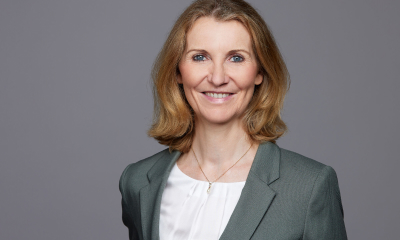PRESS RELEASE

PRESS RELEASE

Berlin goes e-mobile
On 28 May 2025, this year’s Capital City Conference on Electromobility at Berlin City Hall will focus on the development of the charging infrastructure, the transport transition, mobility management in companies and the potential of electric commercial vehicles, among other things.
In line with this, the further development of the Economic Electromobility Funding Programme (WELMO) will be presented. As the use of electric vehicles increases, so does the demand for charging options. Especially in urban rental areas, i.e. existing residential buildings or blocks with many tenants, the lack of sufficient charging options in the immediate residential area often still prevents the purchase of an electric vehicle. In June, the Senate Department for Economics, Energy and Public Enterprises is therefore starting to support housing companies in setting up charging infrastructure in publicly and non-publicly accessible areas. This is part of the Senate’s overall charging infrastructure strategy.
800 participants have registered for the Capital City Conference in person at Berlin City Hall and for the live stream; approximately 30 participants from business, science, and politics will contribute to the programme. The Governing Mayor Kai Wegner is the patron of the event and will open it. The Senator for Economics, Energy and Public Enterprises, Franziska Giffey, and the Senator for Mobility, Transport, Climate Protection and the Environment, Ute Bonde are also taking part.
In the accompanying exhibition, around 20 companies will present their solutions for the future of mobility. The Capital City Conference on Electromobility has been organised by the Berlin Agency for Electromobility eMO once a year in Berlin City Hall since 2011.
Current figures on e-mobility in the capital
According to the Federal Motor Transport Authority (as at 01.01.2025), almost 80,000 electric vehicles in Berlin are electrically powered and around 35,000 charging points (Berlin power grid, as at 21.05.2025) for electric vehicles have been installed in the capital, of which more than 5,000 are publicly accessible. All others are used privately, i.e. at home or at work, where around 80 percent of charging takes place. A total of 157,910 kW of publicly accessible charging capacity is offered in Berlin. This means that the kW output provided exceeds the key required by the European “Alternative Fuels Infrastructure Regulation” (AFIR) (1.3 kW per purely battery-electric vehicle and 0.8 kW per plug-in hybrid) by almost 100 per cent.
Kai Wegner, the governing mayor of Berlin:
“Berlin is a pioneer in electromobility. Thanks to good networking between politics, science and business, major mobility companies such as Berliner Verkehrsbetriebe, the S-Bahn, many private companies and startups are developing innovative solutions for the mobility of tomorrow. They all create jobs and thus improve the quality of life and the environment in our city. The Berlin Senate is promoting this development because we want sustainable and climate-friendly mobility in Berlin. I am delighted to be able to welcome the Capital City Conference on Electromobility to the Rotes Rathaus as its patron and wish you a successful exchange.”
Franziska Giffey, Mayor and Senator for Economic Affairs, Energy and Public Enterprises:
“We are working to make Berlin climate-neutral by 2045 at the latest. In order to achieve this goal, not only heat but also transport must become climate neutral. This transformation offers great opportunities: By investing in low-emission mobility solutions and innovative technologies, we are securing Berlin as a resilient, future-proof location. We are continuously expanding the charging infrastructure in Berlin and will be placing further emphasis on this starting this year. We want even more tenants to be able to charge their electric cars conveniently on their doorstep. In future, we will therefore be supporting housing companies in setting up charging infrastructure in rental neighbourhoods and expanding our popular WELMO funding programme for this purpose.”
Ute Bonde, Senator for Mobility, Transport, Climate Protection and the Environment:
“Progress in the expansion and acceptance of e-mobility will help us achieve our goals on the path to Berlin’s climate neutrality by 2045. We are already on the right track and are committed to continuing along this path.”
Dr. Stefan Franzke, CEO of Berlin Partner:
“Innovative mobility applications create jobs and strengthen Berlin as a business location. That is why we, as Berlin’s business development agency, are working to support and accompany the transformation process in the transport sector towards more electric and sustainable mobility. With the annual Capital City Conference on Electromobility, we provide all relevant players and stakeholders the big stage to inform themselves, exchange ideas and network. That is because the goal can only be achieved through a joint effort.”
Gernot Lobenberg, Head of the Berlin Agency for Electromobility eMO:
“While greenhouse gas emissions in Germany fell by a few percentage points in 2024, we once again exceeded the CO2 target in the transport sector by 18 million tonnes. Sustainable modes of transport must therefore be used much more often – bicycles, public transport, electric mobility, shared mobility. The current figures for e-vehicles and charging points in Berlin are impressive and stand up to national and international comparison. The electrification of fleets – including trucks – is a challenge, but also a great economic opportunity.”
About the eMO:
The Berlin Agency for Electromobility eMO supports the market ramp-up of electromobility and the use of new, innovative mobility solutions for sustainable commercial transport. As a State agency, we support the goals of the State of Berlin and are part of the Berlin business development agency Berlin Partner für Wirtschaft und Technologie GmbH. The tasks of the eMO include the dissemination and testing of new mobility solutions and the management of central State projects. The financing of the eMO and its measures is primarily provided by the Berlin Senate Department for Economics, Energy and Public Enterprises and by numerous partners from business, science and the public sector in Berlin and Brandenburg.
Further information and figures can be found graphically on our website.

